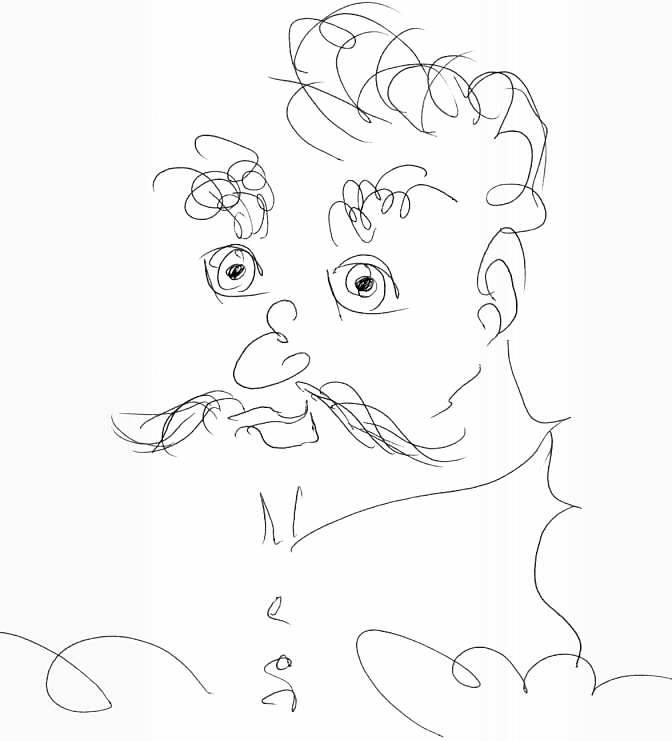Notebook
Sadly, this ignorance is reflected in my writing, which, contrary as it sounds, I also use as a way to combat my ignorance. Writing makes me think. When I write something, or about something, I ask myself whether or not it is true, and I try not to move on until I know the answer. I do this whether I am writing fiction, nonfiction, or poetry. Everything I write, happy, sad, or in between, is written to the same standard. If it is true, then at least on that level, the writing has succeeded. If it isn�t true, than I go back and ask about it again. I try very hard not to publish anything that isn�t true. If something false slips in, it is due to ignorance, and not because I have lied. I am not a liar. But I do have blind spots, and there are huge gaps in my understanding. While I believe these are forgivable sins, I am more inclined to forgive them in others than I am in myself.
I also write to entertain. Writing should be entertaining. The words should be fun to read, and provide an experience that is visual, musical, and emotionally and intellectually satisfying. If I find what I have written to be lacking in any of these ingredients, I begin again. If I am not entertained, then I certainly can�t expect anyone else to be. And I never consider anything done until I have read it to myself aloud. It is far easier to notice problems if you are able to hear them. I firmly believe that most writers could improve their work if they would do this, and that they would be doing themselves and their readers a huge favor. It is easy to tell when a writer hasn�t bothered, which is the same as saying he doesn�t care enough to bother, despite his having gone through an impressive number of dull drafts. The fact is, this is why the entire nation is snoring right now, literarily speaking, and why I can barely hear myself think. There are far too many writers who are content to write at readers, rather than for them. There are far too many who have learned to write according to ready-made formulas, and who have allowed themselves to be educated into a state of precious and carefully crafted aloofness and boredom. That some of them have been given awards, and that the awards are thought to be meaningful and significant, shows how widespread and deadly the situation has become.
This is not to say that I wouldn�t mind winning an award here and there, and that I don�t also write for selfish reasons. I write because I enjoy it, and because there is nothing else I would rather do. I frequently write when I should be doing something else. I write at the expense of a secure present, and proceed on the dangerous assumption that the future will take care of itself. So far it has, though in frightening ways I had not imagined and have not always enjoyed, but have managed to survive. I also have a bloated ego.
Unfortunately, to my knowledge, there are no awards for drawing attention to one�s selfishness, and for pointing out the shortcomings of his colleagues. On the other hand, maybe this is the basis of all awards. One thing is certain: the people who give awards want to be sure ahead of time that the recipient will be properly grateful and say all the right things. In my own case, I don�t know if I would or not. It depends, I guess, on who is giving the imaginary award, and what their reason is for giving it. If it is for trying to be honest and for having a sense of humor, I just might play along.

Also by William Michaelian
POETRY
Winter Poems
ISBN: 978-0-9796599-0-4
52 pages. Paper.
����������
Another Song I Know
ISBN: 978-0-9796599-1-1
80 pages. Paper.
����������
Cosmopsis Books
San Francisco
Signed copies available
Main Page
Author�s Note
Background
A Listening Thing
Among the Living
No Time to Cut My Hair
One Hand Clapping
Songs and Letters
Collected Poems
Early Short Stories
Armenian Translations
Cosmopsis Print Editions
Interviews
News and Reviews
Highly Recommended
Let�s Eat
Favorite Books & Authors
Useless Information
Conversation
Flippantly Answered Questions
E-mail & Parting Thoughts
Old Notes
Current Entry